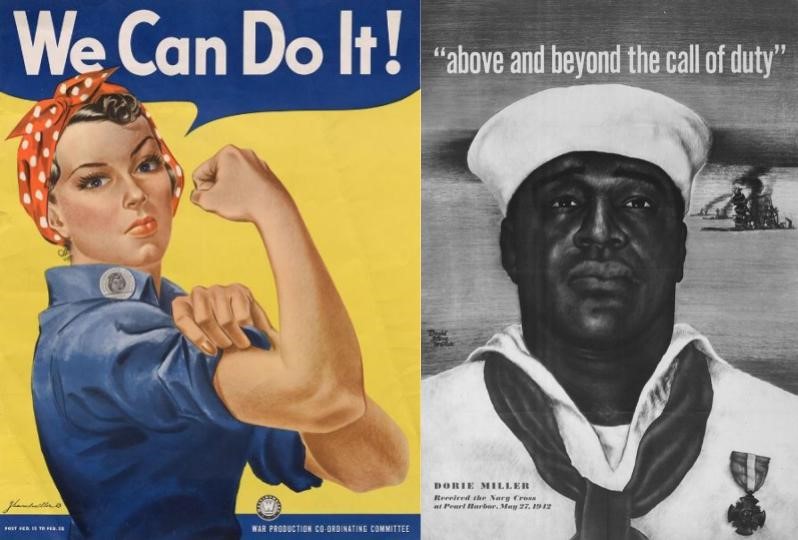The History Major
The disadvantage of [people] not knowing the past is that they do not know the present.
- G. K. Chesterton
History explains how everything in the world came to be the way it is. It examines the experiences of the past in order to explain the present and the future. History is therefore not a narrow discipline but an all-encompassing capstone discipline, the knowledge of which is essential to every professional field and to success in command, citizenship, and government.
Students need to know not just what happened, but why and how it happened as it did, knowledge that is essential for leaders to successfully shape the present to desirable future ends. The problem-solving methodology that we teach in all the History courses is the same one used by effective leaders in the real world to form conclusions and make decisions: find the most relevant evidence; grapple with evidence that is often multi-sourced, non-uniform, incomplete, contradictory, and ambiguous; analyze and interpret it competently to determine weighted cause and effect; form a conclusion based on this analysis; and communicate this conclusion clearly. Repeat until this problem-solving methodology becomes a comfortable habit deployed with confidence.
[The study of history] lies at the foundation of all sound military conclusions and practice.
- Alfred Thayer Mahan
As an all-encompassing, evidence-driven, reality-focused discipline, history is excellent preparation for junior officers. The reward is a much more accurate understanding of the world and the skills and tools needed to communicate successfully.
Effective leadership is applied history.
Major-specific Requirements
Every midshipman, regardless of major, must take three history courses in the core curriculum:
- American Naval History (HH104)
- A choice of Premodern World survey:
- The West (HH215)
- Asia (HH215A)
- The Middle East (HH215M)
- The West in the Modern World (HH216)
History majors must complete a three-year, three-seminar sequence to learn and master the core skills needed to conduct historical research and communicate the results. In HH300 and HH400B, majors work closely with faculty to choose and develop their own research topic.
- The Historian's Craft (HH200) (3/C)
- Research in History (HH300) (2/C)
- A choice between two 1/C Capstone options:
- Historiography (HH400A)
- Research Essay (HH400B)
Majors take seven (7) upper-level electives in History. By design, the major allows great flexibility in course selection compared with other disciplines. Each semester, the department offers 20-25 different upper-level courses, so across three years students may take both a broad range of courses or courses focused in one area of history. To ensure breadth, the major has a distribution requirement. Majors must take at least one course in four (4) of the five following areas:
- American
- European
- Regional (Africa, Asia, Latin America, Middle East)
- Naval and Military
- Thematic (Religion, Science, Race, Film, etc.)
For example: A major with a special interest in Asian history and cultures could take up to four (4) courses focused on that area. One (1) of those classes would satisfy the Regional distribution requirement and the student could take an additional three (3) courses in that area.
Click here for the History major class matrix.
Summary Curriculum Requirements
(In addition to the requirements of plebe year)
- Professional: NN200, NE203, NL310, NL400, NS300, NS42X
- Mathematics: SM223; plus either SM219, SM230 or SM212
- Science: SP211, SP212
- Humanities: Two electives outside the major in English, Political Science, Economics, upper division Foreign Language, Philosophy or Psychology, including one at the 300/400 level
- Language: Four semesters of a foreign language
- Engineering: EE301, EE302, EM300, EN400, ES300, ES36
- Free Elective: One elective course in any discipline
- Major: HH200, HH300, HH400A or HH400B, and seven major electives in four of the five distribution areas


